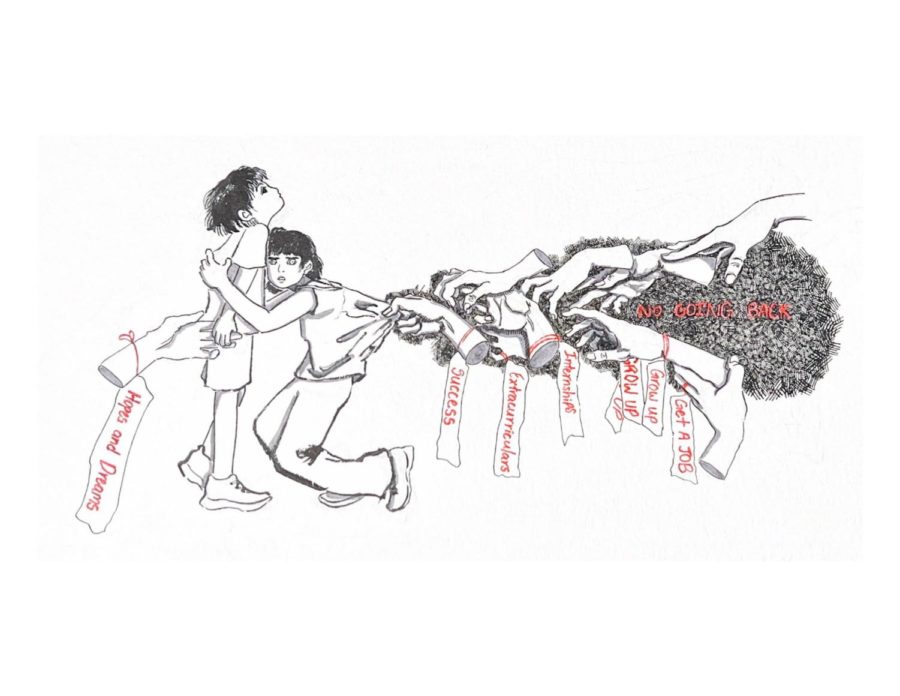I learned this past week that the University’s Office of International Affairs (OIA) exists. I also learned that it is hosting a week-long celebration for International Women’s Day (IWD) in March, a tradition revived last year after a long absence. And after a long look through information on the program, despite being the sort of person who generally appreciates this sort of thing, I’m definitely not hopeful.
The materials used to advertise the program could not be more apolitical if they tried. There is an all-women’s Capture the Flag game on the quads on Wednesday. Why? Because “we encourage women to be active and fierce competitors, and to have a lot of fun while doing it!” The blurb for Thursday’s Gender Equality Matters parade (from the center of the quads to Ida Noyes), in an awkward flirtation with activism, blandly encourages participants to “wear [their] ‘statement’ T-shirts.”
It all seems to me like a lot of generic “girl power” and not a lot of critical reflection, which strikes me as odd for an institution famed for its merciless critical thinking. But, you might say, IWD shouldn’t be about “negativity.” It should be a celebration of accomplishments and progress.
But positivity, especially when the privileged are the ones preaching it, can be—and often is—exclusionary and reductive, spotlighting the ways that a few have been able to leverage success out of an unjust world, rather than asking what can be done to make that world less unjust. And there is clearly a sensibility among organizers of these events that celebrating women’s accomplishments necessarily skirts deeper, harder questions about how women fail to become notable, or noticed at all. Indeed, the preface to the list of “Notable UChicago Women” on the IWD UChicago site admits that “the very premise of such [a list] is problematic.”
But a discussion about women and the University of Chicago should not be satisfied with a nod to those who walked here and worked here and yet have no plaques to their name. Such a discussion should interrogate the conditions that prevent women from ever getting here. And ultimately that is what struck me when I combed the information about the week’s programming: There does not seem to be a platform from which participants can acknowledge the fact that—for most of us—part of our conditions of community and opportunity have been created by our access to immense wealth. It is true that women granted access to these spaces can do wonderful things, and that those things are admirable. But it is also true that our world is sexist in complicated and intersectional ways, and that that sexism involves the erasure of certain kinds of women from the view we have as we look out on the world from this campus.
This a celebration for International Women’s Day, and yet the only event that provides a space for dialogue is strictly to discuss “gender (in)equality at UChicago.” There’s no problem with discussing University policies and politics. But why is that all?
Lest you think I’m making too much of some poor web-editing choices, there is at least one good reason to believe that this attitude extends beyond marketing. On Valentine’s Day, the administrators of the Facebook event page for the week’s programming posted a link to the One Billion Rising (OBR) campaign, a link that was also posted on other websites affiliated with the OIA’s programming for the week. One Billion Rising (led by The Vagina Monologues’ Eve Ensler) is an extremely visible campaign against sexual and sexist violence, but it has a troubled history of dismissing minority activists—not to mention sensationalizing women’s complex relationship with violence as something that can be solved, or at least cheered up, by a massive, synchronized, worldwide dance. Particularly, in recent years, the Canadian branch of OBR has attracted a lot of attention for silencing indigenous women, an issue on which activist Lauren Chief Elk, founder of the Save Wiyabi Project, has written extensively. This year, OBR was massively protested and widely rejected, and all it takes to know this is a quick Google search for “one billion rising controversy.”
Why is this important? Because this is thoughtlessness, and because it suggests that UChicago’s celebration of International Women’s Day/Week is more interested in being generic and inoffensive than in doing its critical homework. It doesn’t bode well. And it sure doesn’t put me in the mood for an all-women’s game of Capture the Flag.
Emma Thurber Stone is a third-year in the College majoring in anthropology and gender and sexuality studies.








